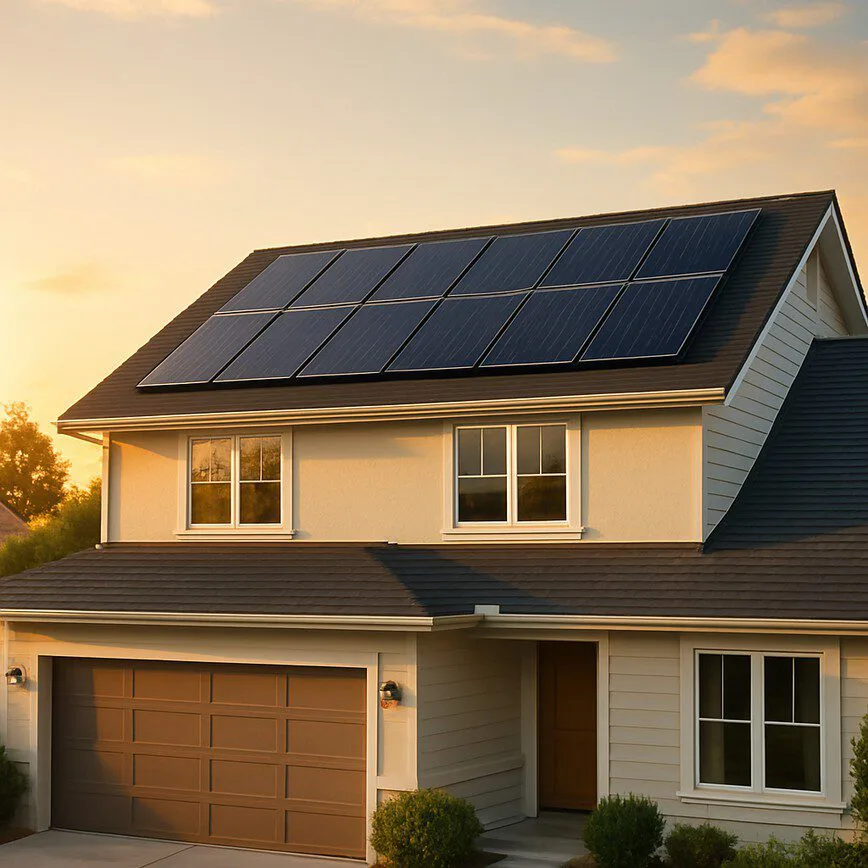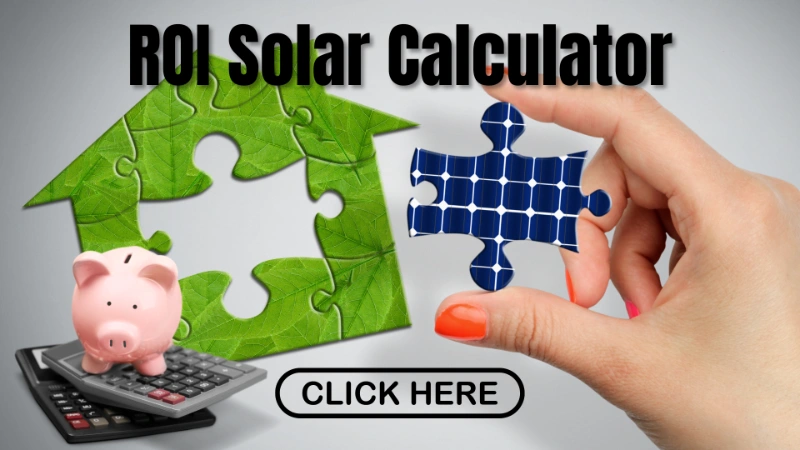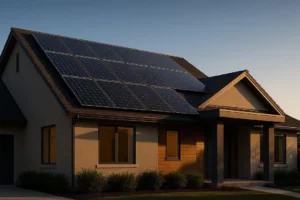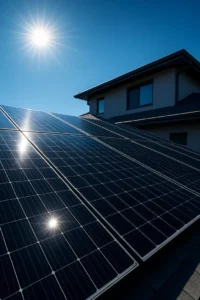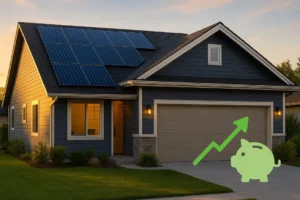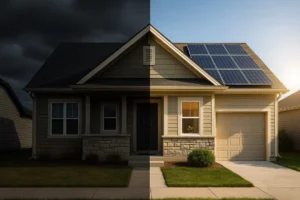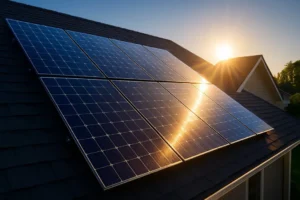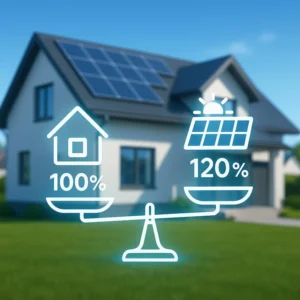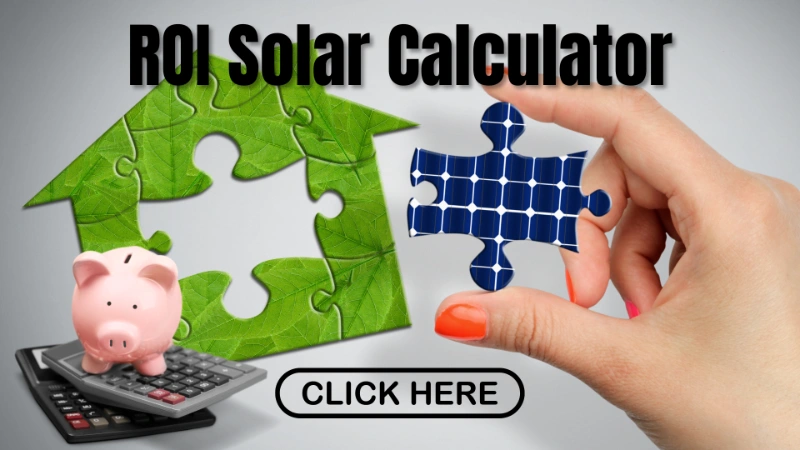Deciding to go solar is a major step towards energy independence and a lower carbon footprint. But before you envision panels on your roof, the first question on your mind is likely: “How much does it all cost?” Understanding the cost of solar panels for your home is the crucial first step in your journey. While the internet is full of ballpark figures, the real price is unique to your home, your energy needs, and your location.
Table of Contents
- The Average Cost of Solar Panels for a Home in 2025
- What Factors Influence Your Final Solar Panel Cost?
- How to Get an Accurate Solar Panel Quote
- Unlocking Savings: Incentives, Tax Credits, and Rebates
- The Big Question: Are Residential Solar Panels Worth the Investment?
- Your Next Step to Solar Savings
This comprehensive guide is designed to cut through the noise. As a leader in residential solar solutions, RenewGenius has built a comprehensive solar knowledge base to empower homeowners like you. We’ll break down the average costs for 2025, detail the factors that influence your final price, explain how to get an accurate solar panel quote, and help you answer the ultimate question: are residential solar panels worth the investment?
The Average Cost of Solar Panels for a Home in 2025
The average cost to install a residential solar panel system in the U.S. typically ranges from $17,000 to $32,000 before any tax credits or incentives. This translates to roughly $2.80 to $3.50 per watt.
However, a total price doesn’t tell the whole story. The size of the system, measured in kilowatts (kW), is the most significant cost driver. A larger home with higher electricity usage will require a larger system.
Here’s a general breakdown of average system sizes and their estimated pre-incentive costs:
| System Size (kW) | Avg. Annual Electricity Usage (kWh) | Estimated Cost Range (Before Incentives) |
|---|---|---|
| 6 kW | 7,200 – 9,000 kWh | $16,800 – $21,000 |
| 8 kW | 9,600 – 12,000 kWh | $22,400 – $28,000 |
| 10 kW | 12,000 – 15,000 kWh | $28,000 – $35,000 |
| 12 kW | 14,400 – 18,000 kWh | $33,600 – $42,000 |
Note: These are national averages. Your actual costs will vary based on the factors below.
What Factors Influence Your Final Solar Panel Cost?
The price range is wide because no two solar installations are the same. Here are the key variables that determine your project’s final cost.
System Size (kW)
As shown above, this is the biggest factor. Your system’s size is determined by your average monthly energy consumption, which you can find on your utility bill. The goal is to generate enough power to offset as much of your usage as you desire.
Solar Equipment Quality
Not all solar equipment is created equal. A detailed solar equipment price list from a potential installer should break down the specific brands and models they plan to use. Key components include:
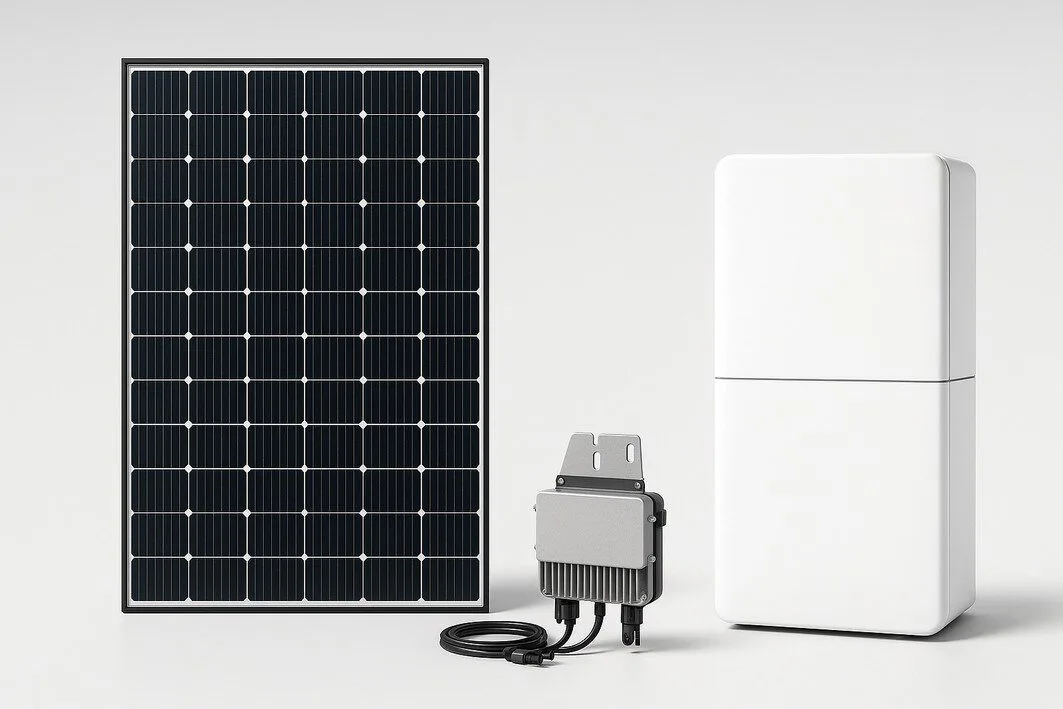
- Solar Panels: Tier 1 panels from reputable manufacturers cost more but offer better efficiency, longer warranties, and superior performance over time.
- Inverters: These devices convert the DC power from your panels to the AC power your home uses. Microinverters and power optimizers are more expensive than traditional string inverters but can offer better performance, especially on complex roofs.
- Battery Storage: Adding a solar battery to store excess energy for use at night or during outages will significantly increase the upfront cost (often by $10,000 or more) but provides energy security and can maximize your savings in certain utility markets.
Making the right choice depends on your budget and performance goals. To learn more about the different components that make up a system, you can explore our detailed guides on solar products.
Roof Characteristics
Your roof’s pitch, orientation, age, and material all play a role. A south-facing roof with a standard pitch is ideal. Complex roofs with multiple angles, dormers, or skylights require more complex mounting and wiring, increasing labor costs. If your roof is old or in poor condition, it may need repairs or replacement before panels can be installed.
Labor and Installation Complexity
The cost of labor varies by region. Furthermore, complex installations, such as those requiring significant electrical upgrades to your main service panel or long conduit runs, will add to the final price.
Location, Permitting, and Interconnection
Permitting fees and requirements vary by city and county. Your installer will also handle the interconnection agreement with your local utility, which sometimes involves fees.
How to Get an Accurate Solar Panel Quote
A generic online estimate is a starting point, but a detailed, custom solar panel quote is essential for an accurate price. As specialists in residential solar solutions, we know what a high-quality quote looks like.
What to Look For in a Quote
A trustworthy quote is a comprehensive proposal, not just a single number. It should include:
- Total Gross Cost: The full price before any incentives.
- System Size: The exact size in kW.
- Equipment List: Specific brands and model numbers for panels, inverters, and racking.
- Estimated Production: A projection of how much energy (in kWh) the system will produce annually.
- Warranty Information: Separate warranties for equipment, workmanship, and performance.
- Incentives Breakdown: A clear estimate of federal, state, and local incentives you are eligible for.
- Net Cost: The final price after all incentives are applied.
Red Flags to Avoid
Be wary of installers who use high-pressure tactics, provide vague quotes without equipment specifics, or are unwilling to answer detailed questions. A credible installer will be transparent and educational.
Unlocking Savings: Incentives, Tax Credits, and Rebates
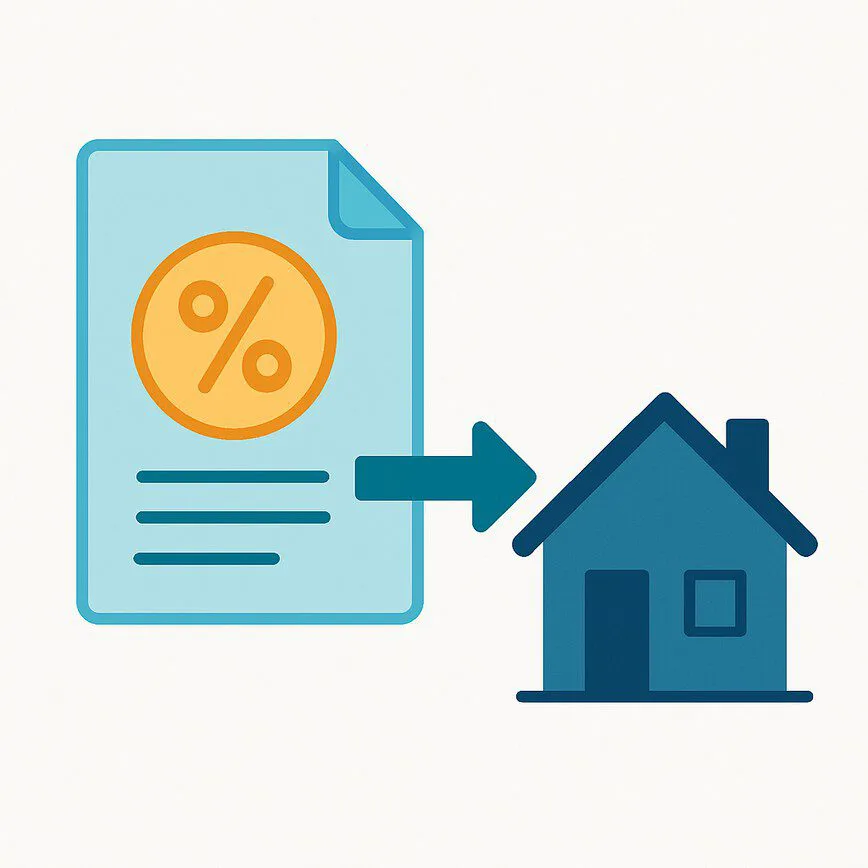
The “sticker price” is not what you will actually pay. Government incentives dramatically reduce the cost of going solar.
The Federal Solar Tax Credit (ITC)
The most significant incentive is the Residential Clean Energy Credit, often called the ITC. It allows you to deduct 30% of the total cost of your solar system from your federal taxes. For a $25,000 system, that’s a $7,500 credit, bringing your net cost down to $17,500.
State & Local Incentives
Many states, municipalities, and utility companies offer their own rebates, tax credits, or performance-based incentives (like SRECs). These vary widely, so it’s crucial to research what’s available in your specific area.
The Big Question: Are Residential Solar Panels Worth the Investment?
After reviewing the costs, you’re left with the most important question. For most homeowners, the answer is a clear “yes.” A solar system isn’t just an expense; it’s an asset that generates a return.
Calculating Your Return on Investment (ROI)
Your ROI is determined by how quickly your energy savings pay for the system’s cost. This is known as the “payback period.” After that period, every kilowatt-hour your system produces is pure savings. The average payback period in the U.S. is between 8 and 12 years.
Long-Term Financial Benefits
- Eliminate or Drastically Reduce Electric Bills: Lock in your energy costs for the 25+ year lifespan of your system.
- Increase Your Home’s Value: Studies have shown that homes with solar panels sell for more than homes without them.
- Hedge Against Inflation: As utility rates continue to rise, your cost of energy remains fixed, saving you more and more money over time.
To get a personalized estimate of your long-term savings and payback period, you need to analyze your specific energy use and local rates. RenewGenius offers a powerful ROI calculator to help you make that decision and see your potential returns in black and white.
Your Next Step to Solar Savings
Determining your exact solar panel cost requires a personalized assessment. By understanding the factors at play, you are now equipped to have an informed conversation with installers and evaluate quotes with confidence. The financial case for solar is stronger than ever, with significant tax credits, long-term savings, and a strong return on investment making it a wise financial move for millions of homeowners.
Ready to see what solar could save you? Use our comprehensive knowledge base and tools to take the next step toward energy independence.

